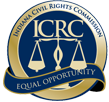Akia Haynes, Deputy Director of the Indiana Civil Rights Commission (ICRC), has issued a Notice of Finding against Ascension Health at Home. The charge states that probable cause exists to believe that an unlawful discriminatory practice has occurred (Ind. Code § 22-9, et seq.).
By way of background, Complainant worked for Ascension as a Home Health Aide. During her employment with Ascension, Complainant sustained a workplace injury on or about July 29, 2015. Complainant visited Ascension’s medical center and was permitted to return to work with a lifting restriction of no more than 20 pounds, a pushing/pulling restriction of no more than 50 pounds of force, and a bending restriction of no more than three hours a day. Complainant also stated that the medical center suggested she see her personal physician for further information.
Later, on or about August 11, 2015, Complainant visited her OBGYN and was placed on a lifting restriction of no more than 25 pounds for the remainder of her pregnancy (through February 14, 2016). Evidence shows that Ascension initially permitted Complainant to return to work and perform duties within her work restrictions. However, evidence suggests that the following day, Complainant was informed that Ascension was unsure whether they could continue accommodating her restrictions. Evidence shows that Complainant asked Ascension why it permitted a particular nurse to remain on the schedule after being placed on work restrictions related to a surgery, but could not accommodate her restrictions. Complainant asserts that she was told that “they had work for her, but not for [Complainant]” and that she would have to leave after the completion of her current task.
Complainant asserts that she spoke with Ascension on or about August 21, 2015 and requested to return to work, but Ascension refused to return Complainant to the schedule citing that “there was no guarantee that she would never be required to lift more than 25 pounds.” While Complainant asserts that Ascension permitted several other Home Health Aids to perform light duty office tasks, Ascension removed Complainant from the schedule.
Despite Ascension’s assertions, there is insufficient evidence to support their claims as alleged. Rather, Complainant provided the names of several employees who were accommodated with a similar ability or inability to work for a short period of time. While Ascension asserts that it treated Complainant the same as “any other individual who is unable to perform his or her duties due to medical restrictions,” it failed to rebut Complainant’s assertions that it accommodated several other employees with similar abilities or inabilities to work. Simply stated, there is sufficient evidence to believe that Ascension failed to treat Complainant the same as it treated other similarly-situated temporarily impaired employees with similar abilities or inabilities to work. Moreover, as Ascension’s rationale for removing Complainant from the schedule appears to be pretext for unlawful discrimination on the basis of pregnancy, probable cause exists to believe that a discriminatory practice occurred as alleged.
A public hearing is necessary to determine whether a violation of the Indiana Civil Rights Law occurred as alleged. The parties may agree to have these claims heard in the circuit or superior court in the county in which the alleged discriminatory act occurred. However, both parties must agree to such an election and notify the ICRC within 20 days of receipt of their notice, or the Commission’s Administrative Law Judge will hear this matter.
Click here to view official press release document.
The Indiana Civil Rights Commission enforces the Indiana civil rights laws and provides education and services to the public in an effort to ensure equal opportunity for all Hoosiers and visitors to the State of Indiana.
